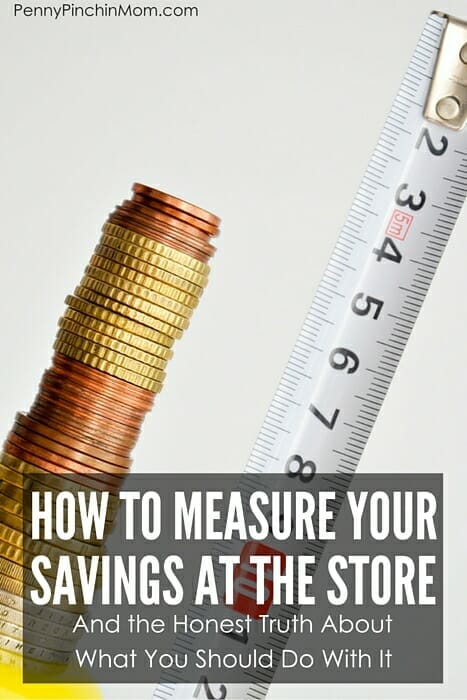No matter how long you have been trying to save money, you know how great it can feel. Of course, sometimes, it is difficult to actually give value (other than actual cost) to what you save. Do you really know how to measure your savings? Even more so, do you know what you should really do with those funds?
Whether you use cash and can see the savings in your hand, or use a debit card and see it in your checking account, it is smart to really keep track of how much you save. The simplest way to do this is to use a spreadsheet and write down your savings.
But, what should you do with the money saved? Should you spend it? Should you use it towards debt? Maybe you should just save it. The honest answer is — use it wisely.
If you are in debt, any and all amounts you save should be instantly applied towards your debt. If your budget was to spend $200 at the store this week and you did so well saving money that your final total spent was only $125, then take that $75 and instantly pay it towards a debt. Do not even allow it to sit in your account.
If you find you are out of debt, a simple thing you can do is transfer that money into your savings account. You might be surprised at just how quickly your account can build up!
We utilize this method – but a little differently. At the end of each pay period, we take any cash left over from grocery and other envelope accounts and place it into a larger envelope. A few years ago, we were able to use the cash we saved to pay cash for our new HDTV and stand. We’ve also used it towards a basement remodel, vacation for our family and to even repaint our house.
We look at this as “free money.” It did not come from our emergency savings and it did not even really come from our budget. We just were wise with our spending and found extra money in our budget which we used in the way that worked best for us.
Whether you decide to actually account for your savings, or even just pat yourself on the back for spending less than you have before, it’s up to you. It is just about trying to save money on your purchases. I always say it isn’t what you spend – it’s what you keep!
